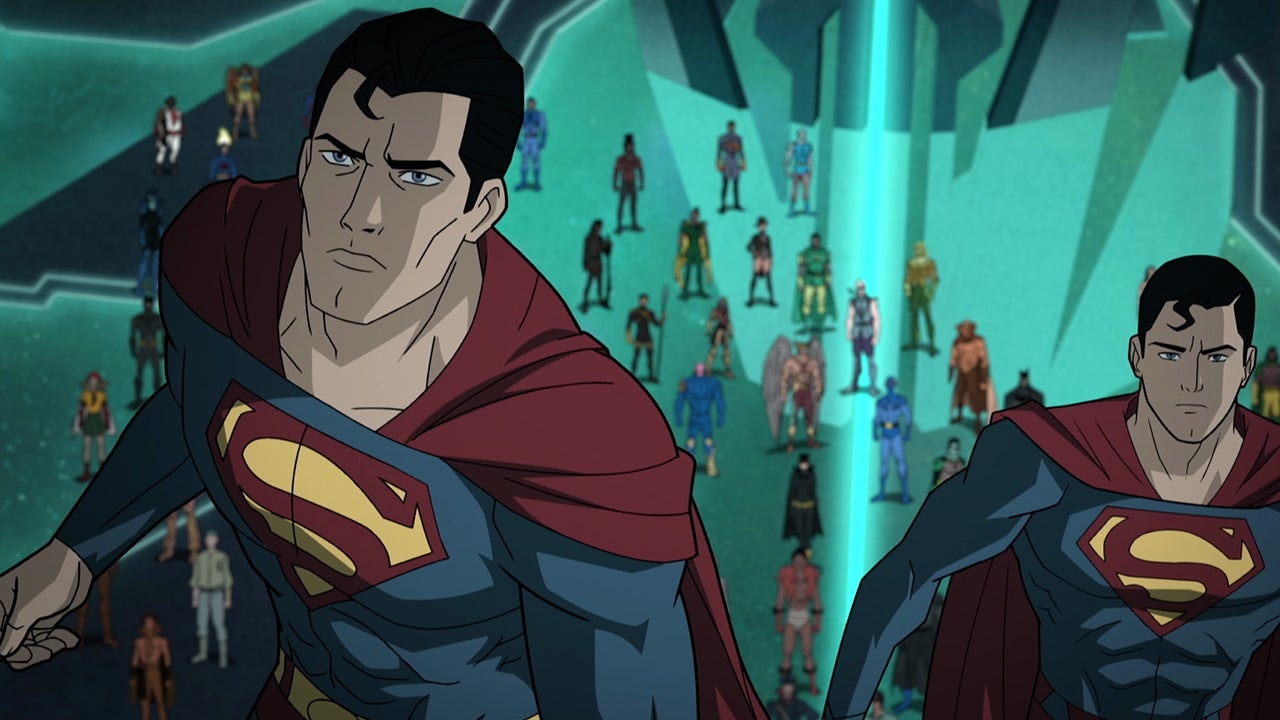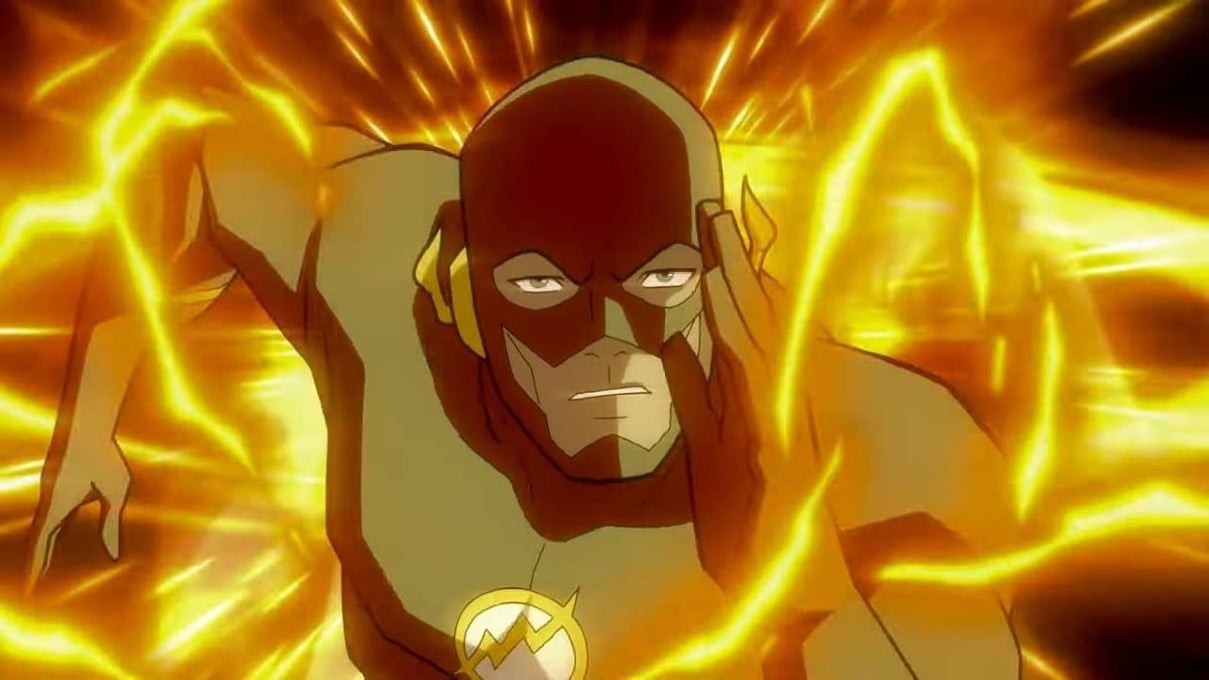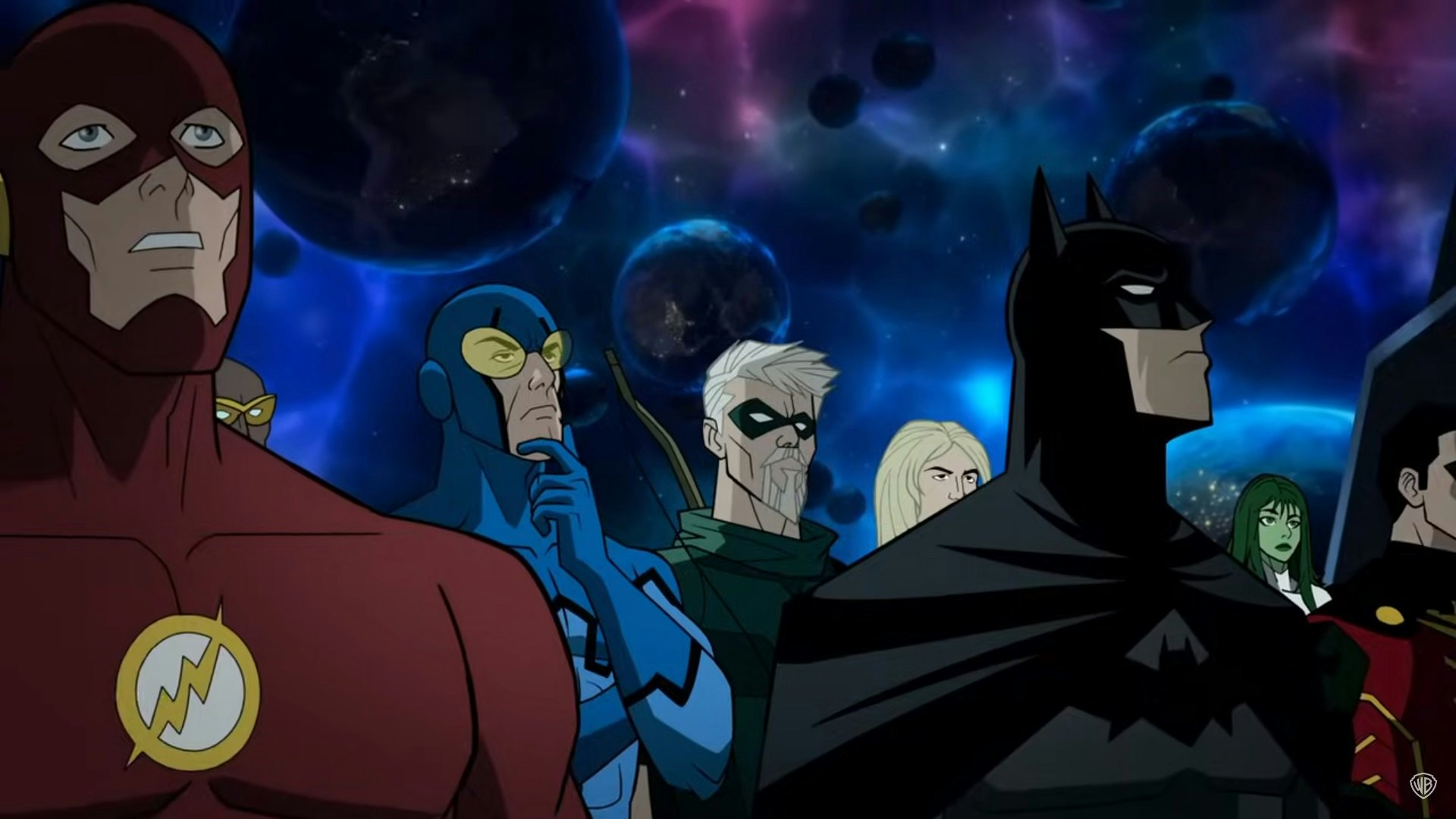
DC Comics has always thrived in animation. Despite a few all-time great shows like Legends of Tomorrow and Doom Patrol, DC live-action TV often struggles due to network TV constraints, while the live-action movies mostly result in duds. But animation remains the crown jewel of DC adaptations. From the Timmverse on TV to the spectacular series of adaptations of beloved storylines like Flashpoint and Under the Red Hood to original productions like Apokolips War, animation is where you’ll find DC at its brightest.
Now, on the cusp of a new DC universe erasing everything to start fresh, the thought of the latest DC animated universe resorting to a big reset is kind of sad. But if this is to be the end of DC animated movies as we know it, part one of the Justice League: Crisis on Infinite Earths trilogy sees the Tomorrowverse go out with a bang.
Based on the legendary ’80s crossover storyline written by Marv Wolfman and penciled by the late George Pérez that forever changed DC comics, Crisis on Infinite Earths is about a wave of antimatter slowly destroying the DC multiverse, forcing heroes and villains from across realities to step up and fight back. The comic event was previously adapted by the Arrowverse to great success, but the new animated film directed by Jeff Wamester does the storyline even better justice.
The first thing to know about Justice League: Crisis on Infinite Earths - Part One is that it is not a straight adaptation. For one thing, this is more of a Flash and Justice League movie that builds up to a big crossover event. If anything, it feels like reading Crisis by starting on one of the tie-ins before moving on to the main event. Most of the movie is an origin story for Flash. We follow Barry Allen throughout his superhero career, from the moment he gets his powers to co-founding the Justice League. Finally, the Flash receives the call to join up with various heroes and villains from across the multiverse.
Purely taken as a Flash and Justice League movie, Crisis is a great time. It’s different enough to feel fresh, with a new Justice League roster and a new origin for the team that involves Amazo — a robot built for good who gets corrupted and exploited. By keeping the focus on Flash, the movie explores a different side of the Justice League, one more humorous than movies focused on Batman or Superman’s point of view, while also showing the importance of Barry as the heart of the team. It’s Barry, for example, who suggests to Bruce that he should take Dick Grayson as a ward.

Justice League: Crisis on Infinite Earths - Part One follows in the art style of the rest of the Tomorrowverse. In the era of the Spider-Verse movies, this feels like a missed opportunity to represent different DC universes with different aesthetics, but it fits the story here. The visuals are a middle-ground between the anime-influenced fluidity and dynamism of the DC Animated Movie Universe and the cartoonish iconography of the Timmverse, while the designs combine the thick outlines of New Frontier and the cartoony looks of The Brave and the Bold.
Those expecting to see dozens of characters fighting together against a massive villain may be disappointed by the small scale of this film. Yet that’s what makes this not only a good adaptation but a good movie. Reading Crisis on Infinite Earths without being steeped into DC lore means seeing the conclusion of decades’ worth of stories and characters without much context and no singular protagonist who grounds the crossover or serves as the audience’s point of view. Here, by the time universes begin to die and the superteam is assembled, we already know and care about Barry Allen and his friends. (And if you have seen the other Tomorrowverse movies, you already know Superman and the other heroes of Earth-2.) The big spectacle can come later, and by the time it does, the sacrifices and triumphs will hit much harder.

Despite being technically titled as a Justice League movie, this is very much Barry Allen and Iris West’s story. Theirs is arguably the biggest love story in the DC universe outside of Clark and Lois’, and the film does a great job of paying homage to how each character complements the other. A big part of that is thanks to the stunning voice-over work by Matt Bomer (who has become a great asset for DC adaptations since Doom Patrol) and Ashleigh LaThrop.
Ever since 2007’s Superman: Doomsday, we’ve seen DC animated movies that directly adapt comic storylines, changing enough to make them work in movie form. Whatever lies in the future of the animated DC movies, Justice League: Crisis on Infinite Earths - Part One does live up to the biggest legacy of its source material: “Worlds will live, worlds will die. And the universe will never be the same.”







